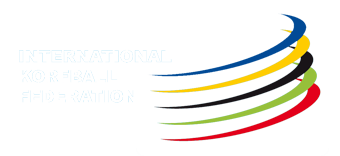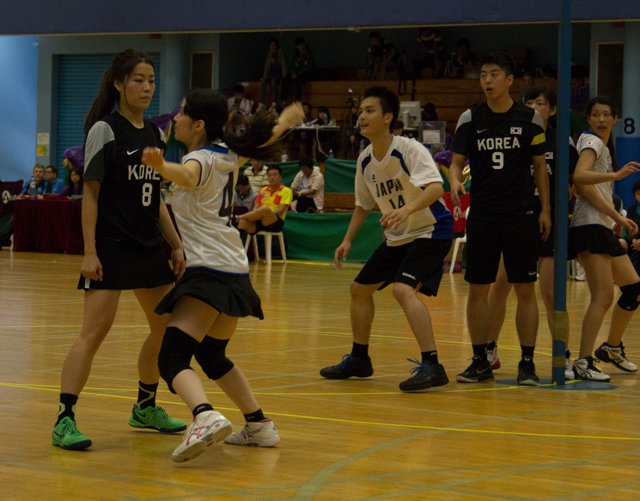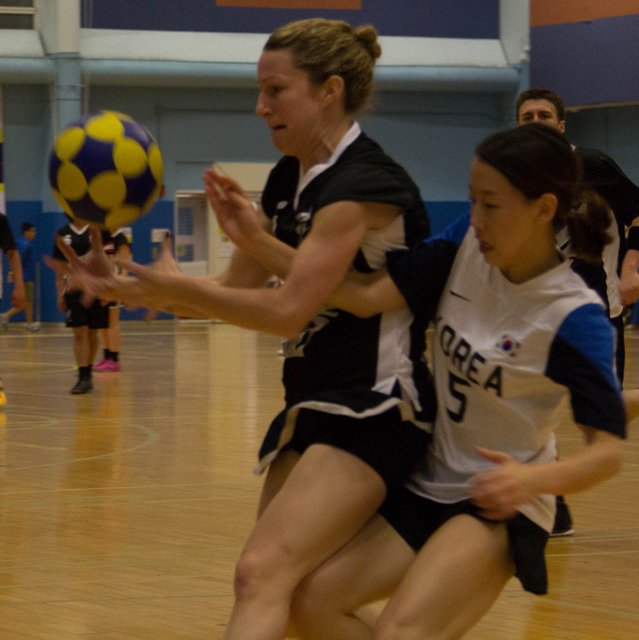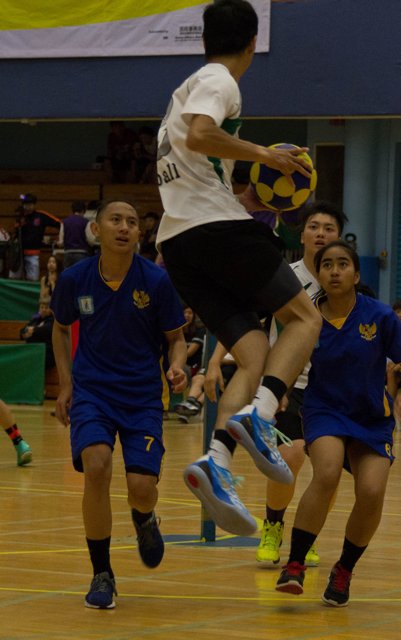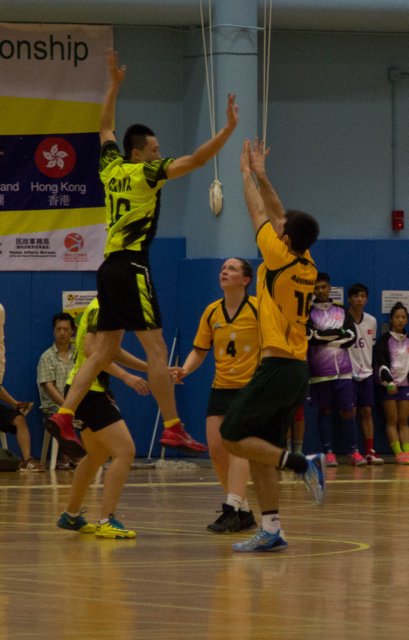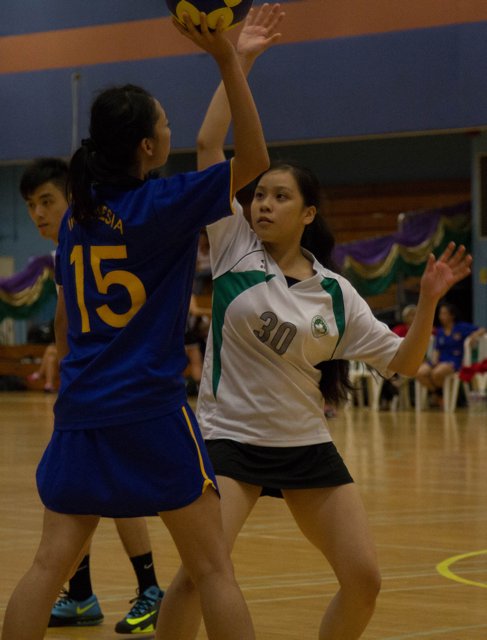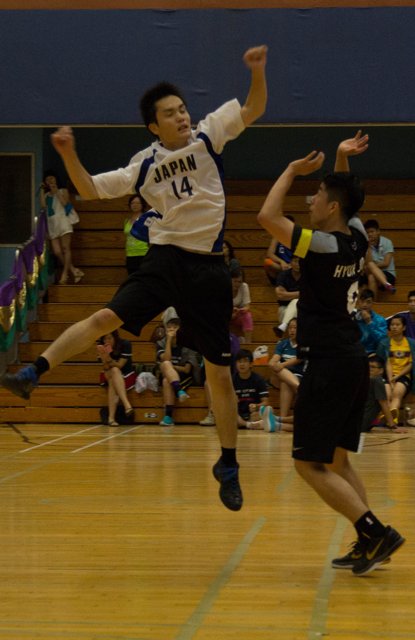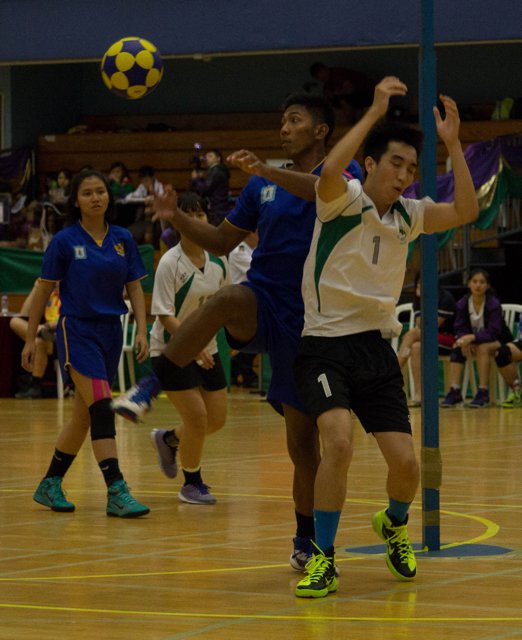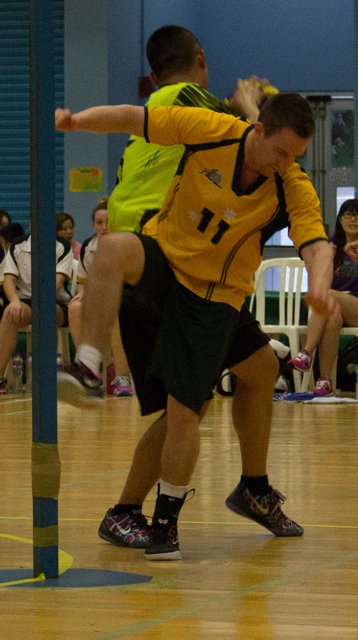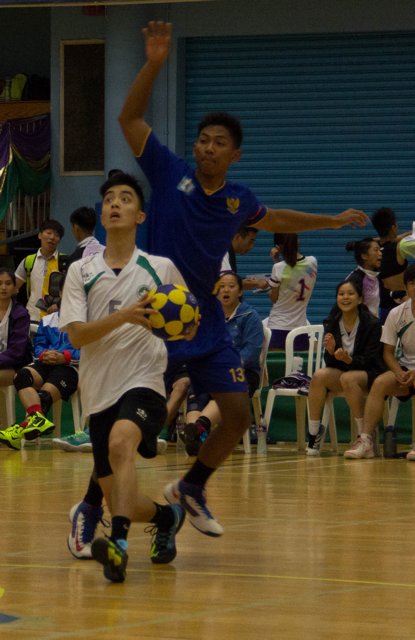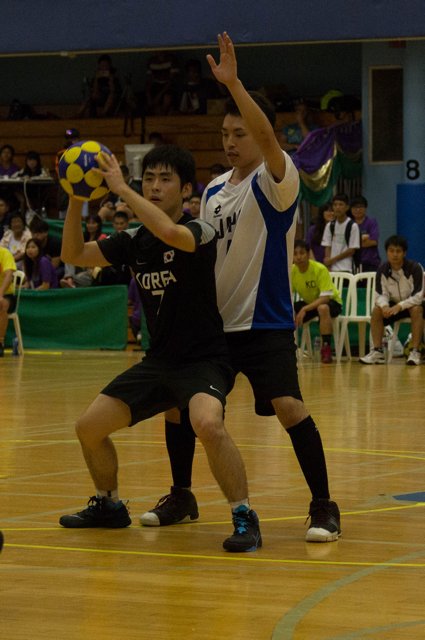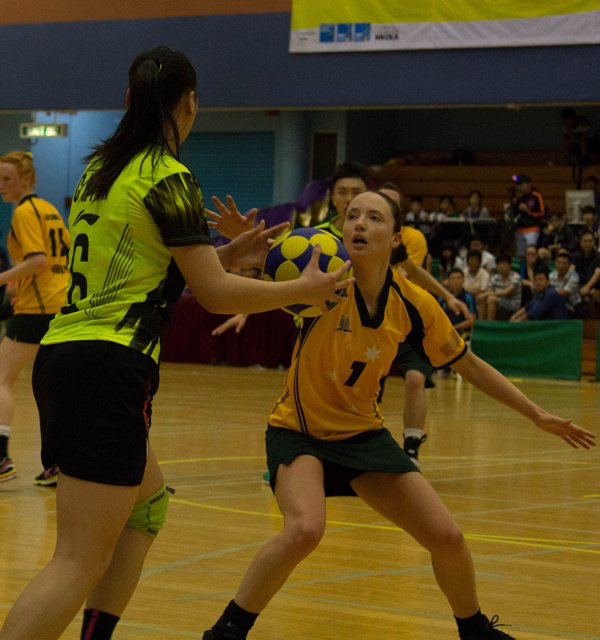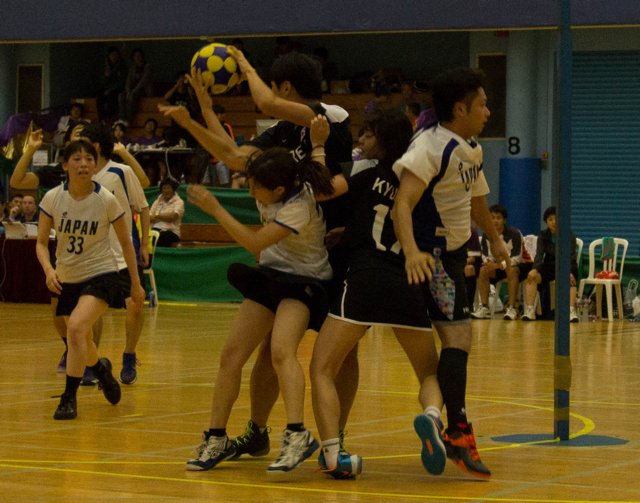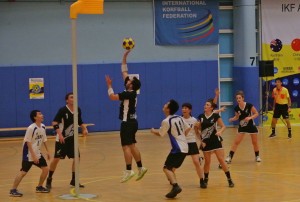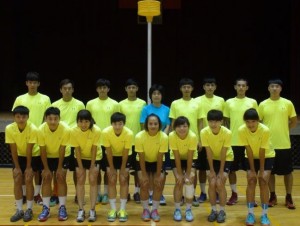Completed on 23 August in Hong Kong, the 2014 IKF AOKC demonstrated marked progress for Asian korfball.
With ten teams competing, two more than the equivalent tournament four years ago in Zhengzhou, China, the standard of play in Hong Kong reflected strong recent development made in Asian korfball under IKF Asia President Inglish Huang.
Although China dropped one ranking place, to Australia, it is a young team that looks capable of making an impression at the 2015 World Championship. Strong and athletic, with equally dangerous male and female players, epitomised by captain Liang Shuaishuai and Muzi Li, it showed the discipline to impose its will against all other teams, aside from the accomplished Chinese Taipei and steadfast Australia. Following the most common Asian model for korfball development, members of this Chinese team are drawn from three universities: Zhengzhou University, Tianjin University of Science and Technology and the Southwest University in Chongqing municipality.
Most significant mover at this AOKC was Malaysia. Having not played at this level previously, it achieved fifth ranking at this tournament, securing the reserve place for the 2015 World Championship. Malaysia’s korfball, built around national pioneer and president of the Malaysia Korfball Association Chee-Yong Jungle Lim, started in 2007. It has close links to Malaysia’s independent Chinese school system. Most players, including coach Lau Wai Fun, have made the transition from basketball to korfball effectively. They combine determination with shooting accuracy, particularly from ‘clutch’ player Randy Ho Kang Lip, whose blend of physical presence and an excellent eye for the korf made him a constant threat and earned him the honour of the tournament’s fourth highest scorer. After this, Malaysia will certainly improve on its 2013 IKF ranking of 35, having passed four countries that were ranked above it last year, and its future looks bright.
Lower down the rankings Korea matched the place it attained in 2010, though should be a big improver next time around as it looks most able to follow Chinese-Taipei’s successful formula for korfball excellence. Korfball’s establishment in the Seoul National University of Korea, which is one of the most prestigious in the country and has close links with Prof Huang’s own National Taipei University of Education, bodes well. Korea’s international korfballers are current students of the university and graduates who are now working as teachers. Through their efforts, korfball is set for inclusion in the country’s primary school curriculum. Although it competes with basketball and volleyball for the attention of young athletes, the Korea Korfball Federation, which was founded in 2006, has a viable pathway to cultivate a second generation, particularly with the close co-operation of Dr Huang and his university.
Macau’s korfball is also university-centred. In this instance the University of Macau, which has a brand new campus with some excellent facilities that look set to significantly boost the potential of korfball in China’s second Special Administrative Region.
Alone among IKF Asia members, Japan is currently the only country mainly relying on the club system for domestic development and education. In recent years Japan Korfball Association’s key leader Yoshimitsu Tobisa, known throughout korfball as Tobi, has established new clubs in Nagoya and Nagasaki. In November this year Japan’s inaugural national korfball championship will be held, with foremost Asian referee Ivan Lee of Hong Kong conducting a pre-tournament refereeing workshop.
Also welcomed back to an AOKC for the first time since 1994 was the nation with the longest korfball history outside The Netherlands and Belgium: Indonesia, where korfball was first played in the 1920s. This, however, is a new start with a young team, under Adelaida Koraag, who played in the team during its previous era. Although finishing last in Hong Kong, the gap between Indonesia and the next ranked teams was not great, and with recent problems the federation has suffered now apparently resolved, there is cause for optimism.
Apart from the eight teams that played in Hong Kong, alongside IKF Oceania’s Australia and New Zealand, IKF Asia has six other members: India, Mongolia, Nepal, Pakistan, Philippines and Singapore. Looking forward to 2018, when the next IKF AOKC will be staged, it is reasonable to expect that at least three of these will join the tournament. This is likely to include newcomers the Philippines, where solid foundations have been laid at the University of Santo Tomas, Asia’s oldest university, which dates back to 1611. Also probably ready to step up in four years will be Singapore, where korfball was dormant for several years until business consultant Derek Ang stumbled across the sport on Google, and was so intrigued that he decided to properly establish korfball in his country. Although it is still early days, he has made good progress with promotion into schools, including sending a number of coaches to a recent clinic in Malaysia. It seems likely that, with continued support from its neighbours, Singapore’s korfball community will grow and progress sufficient to send a team to the 2018 IKF AOKC. By that time korfballers from Vietnam and Sri Lanka might also be ready to join the party.
All of which strengthens the case for korfball’s recognition by the Olympic Council of Asia, which Prof Huang has been working on for a number of years. This recognition would enable entry by the sport into the Asian Games, and various other cyclical multi-sport events staged throughout the continent. A decision on this is expected before the end of 2014, and would mark another significant step for international korfball.
IKF AOKC 2014 final order of teams (with 2010 positions in brackets): 1 (1) Chinese Taipei, 2 (3) Australia, 3 (2) China, 4 (4) Hong Kong, 5 (-) Malaysia, 6 (6) New Zealand, 7 (7) Korea, 8 (-) Macau, 9 (-) Japan, 10 (-) Indonesia.
In 2010 India finished fifth and Pakistan finished eighth, neither participated in 2014, while Malaysia, Macau, Japan and Indonesia participated in 2014, though not in 2010.
